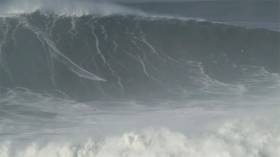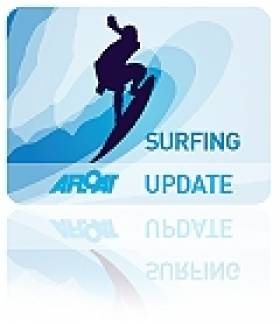Displaying items by tag: Sebastian Steudtner
German Surf Pro Rides ‘115 Foot’ Wave Off Portugal
#Surfing - German big wave surfer Sebastian Steudtner has set an unofficial record for the biggest swell ever surfed.
As the Washington Post reports, Steudtner was filmed a fortnight ago surfing a wall of water off Nazaré in Portugal that’s estimated to be 115 feet.
That’s 37 feet bigger than the monster conquered by Irish-American surf pro Garrett McNamara at the same location in November 2011 (though McNamara is said to have surfed an unverified 100ft wave the following year).
“January has been a busy month for big wave surfers in Europe,” said Steudtner, who was towed out to the swell at Praia do Norte along with fellow extreme surfers Axi Munian, Maya Gabeira and Ross Clarke-Jones.
“While Wednesday the first day of the swell was really windy and hard to surf, Thursday was a day to remember.”
Top German Surfer Tries Ireland's Waves for Size
#SURFING - One of Germany's top surfers was in Ireland last week to sample some of Ireland's biggest waves, InsideIreland.ie reports.
Sebastian Steudtner was in Sligo to films a series of online views for Tourism Ireland in Frankfurt to pique the interest of German surfers and holidaymakers.
As well as mountain biking at Knocknarea and Union Woods, Steudtner took on the monster swells at Mullaghmore Head - made popular among the world's big wave surfers by the Tow-In Surf Session that's now in its second year.
The 'teaser' videos for a larger TV and online project will be premiered next week at the Berlin International Film Festival before hitting the web later in spring.
Kristina Gauges of Tourism Ireland said: "This is a fantastic opportunity to showcase the world-class surfing and adventure product available in this part of Ireland to a niche audience in Germany."
InsideIreland.com has more on the story HERE.






























































